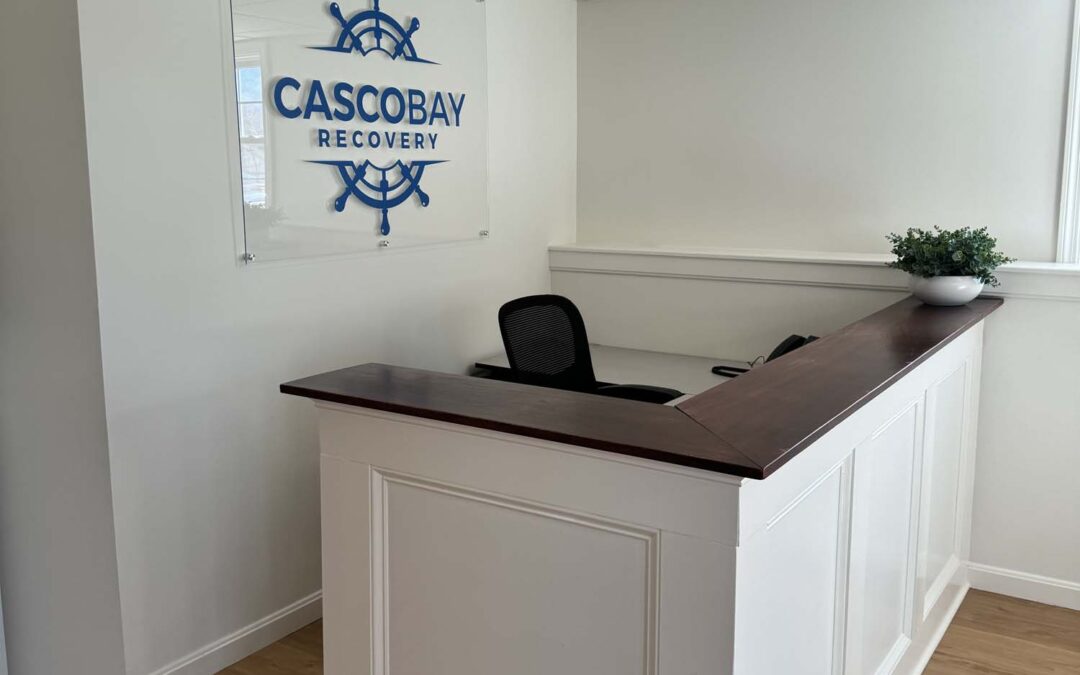What is the Role of Therapy in Overcoming Drug Addiction?
Addiction is a treatable brain and behavior disorder that affects millions of people worldwide. When you understand addiction through this medical lens, you can see why therapy for addiction becomes such a crucial element in recovery. Your brain’s reward system changes during addiction, creating powerful urges and compulsive behaviors that require professional intervention to address effectively.
Therapy serves as the cornerstone of comprehensive drug addiction treatment. While detoxification helps your body eliminate substances, therapy addresses the psychological and behavioral patterns that fuel addiction. You need this therapeutic foundation to develop the tools and insights necessary for lasting recovery.
Behavioral therapies form the backbone of addiction treatment programs:
- Cognitive-Behavioral Therapy (CBT) helps you identify and change negative thought patterns that lead to drug use
- Dialectical Behavior Therapy (DBT) teaches emotional regulation and distress tolerance skills
- Motivational Interviewing strengthens your personal motivation to change
- Contingency Management uses positive reinforcement to encourage sobriety
These evidence-based approaches work by rewiring your brain’s response to triggers and stressors. You learn to recognize the thoughts, feelings, and situations that previously led to substance use, then develop healthier responses.
If you’re searching for “Where can I try addiction therapy in Maine” or seeking “Addiction help in Maine,” professional therapeutic support provides the structured guidance you need to break free from addiction’s grip and build a foundation for recovery. One unique option available in Maine is Equine therapy, which offers mental relief and helps develop critical life skills essential for recovery.
How to Identify and Address Root Causes of Addiction
Understanding the root causes of drug use requires deep exploration beyond surface-level symptoms. Therapy creates a safe space where you can examine traumatic experiences, mental health conditions, chronic stress, or unresolved grief that may have contributed to your substance use patterns.
Addiction triggers often hide in everyday situations, emotions, or relationships. Your therapist helps you map these personal trigger points through detailed assessment and self-reflection exercises. You’ll learn to recognize warning signs like specific locations, social situations, emotional states, or even certain times of day that increase your vulnerability to relapse.
The therapy benefits extend to reshaping your relationship with substances through evidence-based techniques:
- Cognitive restructuring – challenging distorted thoughts about drug use
- Behavioral modification – replacing harmful habits with healthy alternatives
- Mindfulness training – developing awareness of cravings without acting on them
- Exposure therapy – gradually facing triggers in controlled environments
These techniques work together to address both immediate concerns and long-term recovery goals, creating lasting change at the psychological level.
In addition to therapy, it’s crucial to understand the broader context of addiction. This includes recognizing the various factors that contribute to substance use and how they can be addressed. For a comprehensive understanding of this issue, consider exploring this substance abuse treatment guide, which provides valuable insights into effective strategies for overcoming addiction.
Enhancing Coping Skills and Stress Management

Therapy provides you with important coping mechanisms to deal with difficult situations without resorting to substances. You learn practical techniques such as deep breathing exercises, mindfulness meditation, and progressive muscle relaxation to manage strong cravings when they occur.
Stress management becomes a key part of your recovery journey through therapy. Your therapist helps you identify specific sources of stress in your daily life and creates personalized strategies to handle them effectively. These may include:
- Time management techniques to reduce overwhelming schedules
- Communication skills for difficult conversations
- Problem-solving frameworks for complex situations
- Healthy outlets for expressing emotions
Additionally, the development of relapse prevention strategies is an essential aspect of your therapeutic journey. This involves collaborative planning with your therapist where detailed action plans are created outlining specific steps to take when facing high-risk situations. These personalized plans include emergency contact lists, safe places to go, and immediate coping tools you can use.
Building resilience through therapy strengthens your ability to recover from setbacks. You develop emotional regulation skills that help you process difficult feelings without numbing them through substance use, creating a lasting foundation for long-term recovery success. The resilience-building techniques learned in therapy play a crucial role in this process, enabling you to face life’s challenges with greater strength and confidence.
Repairing Relationships and Building a Support Network
Addiction affects not only the individual but also their relationships with family and friends. During recovery, it is crucial to repair these relationships and establish a support network to ensure long-term sobriety.
The Importance of Family Counseling
Substance use often leads to broken trust, poor communication, and emotional distance within families. Family counseling becomes essential in such cases. It provides a safe space for family members to express their feelings and concerns about addiction.
In family therapy sessions, a trained therapist guides conversations between you and your loved ones. This helps everyone involved gain a better understanding of each other’s perspectives and experiences. By actively participating in these discussions, you can work towards rebuilding trust and establishing healthier boundaries within your family unit.
Understanding Addiction Through Therapy
Therapy plays a vital role in addressing the wounds caused by addiction on familial relationships. In addition to individual therapy for the person struggling with substance abuse, incorporating family therapy can be highly beneficial.
Family therapy educates your loved ones about addiction as a disease rather than a moral failing. This shift in perspective reduces blame and shame while fostering empathy towards the individual battling addiction. By involving family members in the therapeutic process, they become better equipped to support your recovery journey.
Connecting with Others Through Group Counseling
Group counseling offers another avenue for healing damaged relationships affected by addiction. These sessions bring together individuals who share similar struggles, providing an opportunity for mutual support and understanding.
In group therapy settings, participants can openly discuss their experiences with substance abuse and its impact on their lives. Hearing others’ stories can be both validating and inspiring, as it reinforces the idea that one is not alone in their battle against addiction.
Developing a Sober Network Strategy
Building a strong support system is crucial for maintaining sobriety post-recovery. Therapy can assist in identifying individuals who genuinely support your goals of staying clean.
During individual or group therapy sessions, you may explore existing friendships or connections that either positively or negatively influence your recovery journey. Recognizing toxic relationships that threaten sobriety becomes essential in order to establish healthier boundaries with those individuals.
Conversely, nurturing relationships with people who promote wellness and encourage sobriety will contribute positively towards your commitment to staying sober.
Integrating Therapy with Other Treatment Modalities
Detoxification becomes significantly more manageable when combined with therapeutic support. You’ll find that counselors help you process the emotional challenges of withdrawal while medical professionals handle physical symptoms. This dual approach creates a safer, more comfortable path through early recovery.
Medication-assisted treatment works most effectively alongside ongoing therapy sessions. Whether you’re receiving methadone, buprenorphine, or naltrexone for opioid addiction, counseling addresses the behavioral patterns that medications alone cannot change. You develop coping strategies while your brain chemistry stabilizes.
Comprehensive addiction care requires addressing multiple life areas simultaneously:
- Medical needs – Managing health complications from substance use
- Mental health – Treating co-occurring disorders like depression or anxiety
- Social factors – Rebuilding healthy relationships and communication skills
- Occupational support – Developing job skills and career planning
- Legal assistance – Navigating court requirements or legal consequences
This integrated model ensures you receive coordinated care rather than fragmented services. Each treatment component reinforces the others, creating a stronger foundation for lasting recovery.
Supporting Long-Term Recovery and Sustained Sobriety
Long-term recovery requires ongoing therapeutic support to maintain motivation and commitment to sobriety. You’ll work with therapists who understand that recovery is a lifelong journey, not a destination. They help you develop internal motivation systems that keep you focused on your goals even when external circumstances become challenging.
When setbacks occur, therapy reframes these experiences as learning opportunities rather than failures. Sustained sobriety becomes more achievable when you view relapse as a learning opportunity to refine your treatment approach. Your therapist will help you analyze what led to the relapse, identify gaps in your coping strategies, and adjust your recovery plan accordingly.
Therapists employ specific strategies to reinforce drug-free activities and healthy lifestyle choices:
- Behavioral activation techniques that help you engage in meaningful, substance-free activities
- Motivational interviewing to strengthen your personal reasons for staying sober
- Cognitive restructuring to challenge thoughts that might lead to substance use
- Lifestyle modification support to establish routines that promote wellness
Additionally, incorporating evidence-based treatments can significantly enhance the effectiveness of your recovery process. These therapeutic interventions create a foundation for lasting change, helping you build a life where sobriety feels natural and rewarding rather than restrictive.
Accessing Addiction Therapy Services in Maine
Finding addiction help in Maine has never been more accessible, with numerous addiction therapy locations Maine offering comprehensive treatment programs. You can choose from individual counseling, group therapy such as our Group Therapy For Addiction in Maine, family sessions, and specialized programs designed for different substances and addiction severities.
At Casco Bay Recovery, we provide tailored therapeutic services that address your unique needs and circumstances. Our experienced therapists use evidence-based approaches to help you build lasting recovery skills. If you’re wondering Will therapy help me beat addiction?, the answer lies in finding the right therapeutic match and commitment to the process.
We offer a variety of services including individual therapy which can be personalized to suit your specific needs. Additionally, our unique ecotherapy programs leverage the healing power of nature in recovery.
Recovery Month 2025 presents the perfect opportunity for a fresh start. You don’t have to navigate addiction alone – professional support can make the difference between struggling and thriving in recovery. Reach out today to discover how can therapy help overcome addiction in your specific situation by contacting us at Casco Bay Recovery.
FAQs (Frequently Asked Questions)
What is the role of therapy in overcoming drug addiction?
Therapy plays a crucial role in treating drug addiction by addressing it as a treatable brain and behavior disorder. Behavioral therapies, such as cognitive-behavioral therapy (CBT), form the core component of addiction recovery, helping individuals modify harmful behaviors and develop healthier coping mechanisms.
How does therapy help identify and address the root causes of addiction?
Therapy helps uncover underlying psychological and emotional factors contributing to addiction by exploring personal triggers and high-risk situations for relapse. Therapists use specialized techniques to modify attitudes and behaviors around drug use, enabling individuals to understand and manage their addiction more effectively.
In what ways does therapy enhance coping skills and stress management for those recovering from addiction?
Therapy teaches healthy coping skills to manage cravings and stress without relying on substances. It assists in developing personalized relapse prevention plans and emphasizes building resilience through therapeutic support, which are essential for long-term recovery and sustained sobriety.
How can therapy repair relationships and build a supportive network during addiction recovery?
Addiction often impacts family and social relationships negatively. Therapy, including family counseling, helps heal damaged relationships and improve communication. Additionally, participation in group counseling and peer support groups fosters sober connections, creating a strong social support network crucial for maintaining sobriety.
How is therapy integrated with other treatment modalities in comprehensive addiction care?
Therapy complements detoxification processes by safely managing withdrawal symptoms and supports medication-assisted treatment for opioid and other addictions. A holistic approach addresses medical, mental health, social, occupational, and legal needs to provide comprehensive care tailored to each individual’s recovery journey.
Where can individuals access addiction therapy services in Maine, particularly during Recovery Month 2025?
Individuals seeking addiction help in Maine can access various therapy options at centers like Casco Bay Recovery, which offers tailored therapeutic services. Recovery Month 2025 encourages reaching out for professional support to start a fresh journey toward sobriety with expert guidance.








